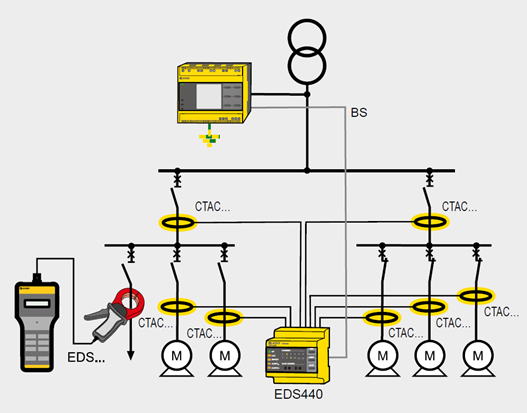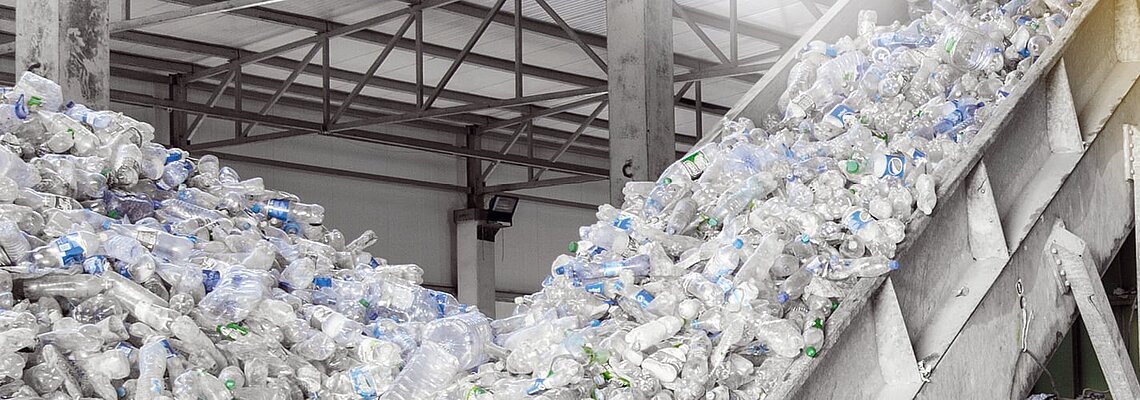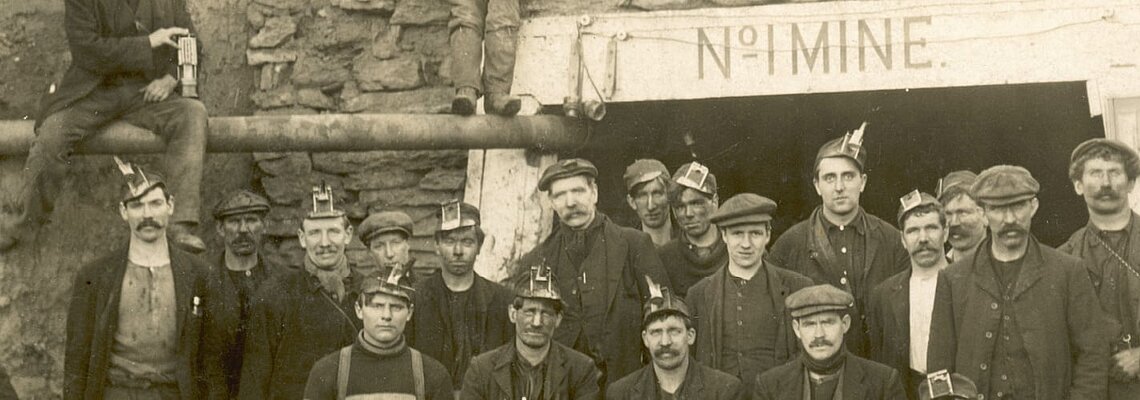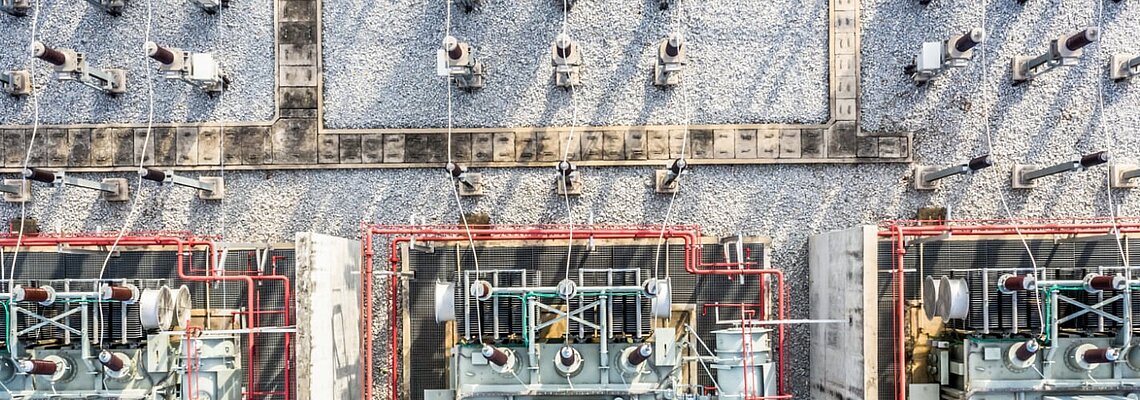
Water and electricity are a dangerous combination, especially concerning industrial processes. Shocks and fatal electrical accidents occur not only in the high-voltage range, but many also occur with low voltages. In wet process environments, it must be ensured that an insulation fault does not cause a serious incident. A suitable ungrounded system and monitoring equipment designed for such conditions can achieve a higher level of protection.
A practical example
Plant manufacturer Krones designed and built a plastic washing system with corresponding shredders for a customer in the recycling sector. Since cleaning the used plastic required much water, the requirements for electrical safety were correspondingly high. As a specialist for ungrounded systems, Bender was asked to deliver standard-compliant insulation monitoring with the added ability to locate faults in two ungrounded systems. In each scenario, insulation monitoring is performed by an ISOMETER® iso685. It was combined with 27 EDS440 insulation fault locators, and roughly 250 current transformers were installed for fault location.
The necessity for insulation monitoring
Many industrial processes, be it in the paper industry, food production, metal refining, or cleaning applications, require water or other electrically conductive liquids in combination with electricity. Water plays a significant role, especially in the case of automatic or semi-automatic washing or cleaning installations. The requirements for protecting their operators against electric shock are correspondingly high. With many industrial processes involving moving components and high dynamics, such as electrical drive systems, insulation faults are often only a matter of time. What usually is a limited, easy-to-manage risk in a dry environment quickly becomes a natural hazard in wet process environments, as the permanent contact with water also affects the electrical insulation. This can result in material fatigue and insulation faults. Constant and continuous insulation monitoring of the production plant helps minimize its dangers.
From insulation fault to plant standstill
However, the combination of water and electricity is problematic not only in terms of the protection of people. The consequences of an insulation fault may be considerable, also when there is no damage to persons. Failures of the power supply system can reduce the availability of an installation to such an extent that also all downstream processes and structures will stand still. In the best case, this results only in a short-term reduction of a company's productivity and the consequent decrease in profitability. The outcome will be worse when an insulation fault damages the installation significantly and time-consuming repairs are needed. A further danger looms for the products: These may be damaged in the defective building or inferior quality due to an insulation fault.
Tailor-made solutions for complex production plants
For many years, Bender has been a proven specialist in ungrounded systems (IT systems). Bender recommends it in the explicit knowledge that choosing a power supply system is crucial for safety. Ungrounded systems, as opposed to solidly grounded systems, offer two decisive advantages: The low fault currents entailed reducing the risk of an electric shock. In the event of a first insulation fault, the installation does not shut down as with other supply system types, but it can continue to operate also while the fault is being located.

The three biggest advantages of ungrounded systems with fault-locating equipment:
- Increased protection of people against electric shock, even in wet process environments
- Greater process reliability: no shutting down after a first insulation fault
- Quick and reliable fault location using insulation fault locators in combination with current transformers
Bender Service
Bender supported a plastic washing plant project with engineering support, custom manufacturing, and service. Bender specialists were on-site during the commissioning of the plant. In this manner, the products were fully tested and programmed quickly with product specialists providing the customer training and confidence in the protection. Commissioning took place without a glitch – which completely satisfied the customer.
Do you also have wet process environments? If your company has wet conditions, contacting Bender will be worth your while. Regardless of whether you are dealing with designing a plant from scratch, redesigning a plant, or modernizing one: Bender specialists will be happy to advise you on the best relays to fit the applications.
For more information about this application or to learn more about Bender technology related to your specific application, contact our team of experts.
This article is for informational purposes only. Bender provides the information "as is" without warranty and is not responsible for its accuracy or reliability. No warranties are given regarding its suitability for any specific circumstances.




